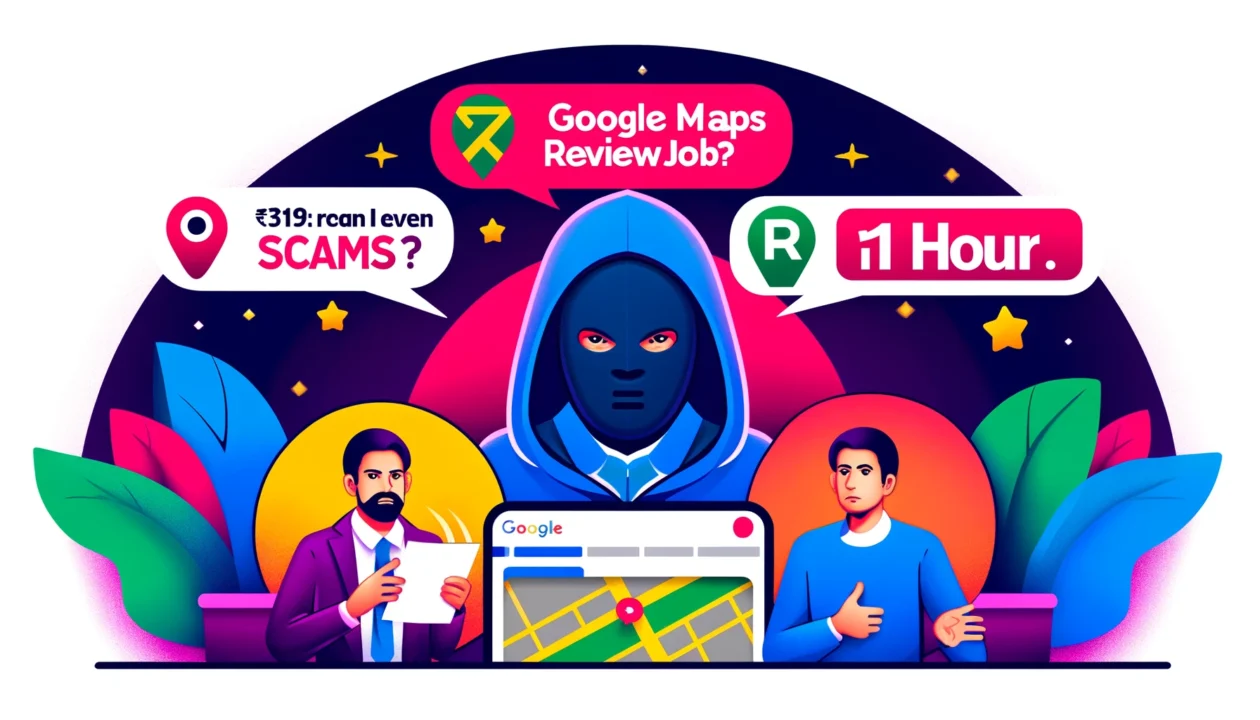VRBO Host Requirements – 13 Things You Need To Know | How VRBO Works


Think you know everything about hosting on VRBO? Let us surprise you! In this guide, we’ll share 13 cool facts about VRBO that could change how you host. We’ll talk about key VRBO host requirements, like making an awesome property listing and using VRBO’s cool tools—like adding videos to show off your space. Did you know that 70% of VRBO bookings come from families looking for private homes? That’s because families love the comfort and privacy VRBO offers. Join us as we uncover tips on how to attract families, get more visibility for your property, and create great guest experiences. Ready to learn? Let’s jump in!
VRBO Host Requirements: What You Need to Know
Hosting on VRBO can be a fun and rewarding experience, but there are some rules you need to follow to make sure your guests are happy and your listing stays active. These requirements help you get good reviews, build trust with guests, and keep them coming back. Here’s an easy guide to what VRBO expects from its hosts:
1. You Must Own or Manage the Property
To list on VRBO, you need to own the property or have permission from the owner to manage it. This means signing agreements and making sure you have the right insurance.
2. Provide Accurate Information
Give clear and truthful details about your property. Here’s what to include:
- Location: Share the exact address to help guests find your property.
- Size and Layout: Mention the number of bedrooms, bathrooms, and total space.
- Amenities: Highlight cool features like pools, hot tubs, or smart TVs.
- Sleeping Arrangements: Let guests know how many people can sleep comfortably and where.
If your listing isn’t accurate, you could get bad reviews or even be removed from VRBO.
3. Use Great Photos
High-quality photos make a big difference. Show off your property’s best features, including:
- Bedrooms, kitchens, and living spaces
- Outdoor areas like gardens or patios
- Special features like fireplaces or great views
Photo Tips:
- Take pictures during the day with natural light.
- Make sure the space is clean and clutter-free.
- Use a tripod to keep your photos steady and clear.
- Show how rooms can be used, like a workspace or game area.
Good photos can make your listing stand out and attract more guests.
4. Communicate Quickly with Guests
Answering guests quickly is super important. VRBO expects you to:
- Respond in 24 Hours: Reply to guest messages fast to show you care.
- Use Messaging Tools: Automated tools can help you send quick replies, keeping your guests informed and happy.
Being responsive builds trust and makes your listing look professional.
5. Keep Your Property Clean and Safe
Guests expect a clean and safe place to stay. Make sure you:
- Add Safety Features: Install smoke detectors, secure locks, and other basics.
- Clean Thoroughly: Tidy up after every guest and provide cleaning supplies for them to use.
Using apps like Breezeway can help you organize cleaning and inspections easily.
6. Be Clear About Your Policies
Set clear rules for your property to avoid confusion. This includes:
- House Rules: Explain noise limits, smoking rules, and other expectations.
- Pet Policies: Let guests know if pets are allowed and any extra fees.
- Cancellation Terms: Share your cancellation policy so guests know what to expect.
Guests appreciate clear information, and it makes their stay more enjoyable.
7. Follow Local Laws
Make sure your property follows the rules in your area. This might include:
- Short-Term Rental Permits: Many cities require these to rent legally.
- Zoning Laws: Check if your neighborhood allows short-term rentals.
- Guest Limits: Some places limit how many people can stay. For example, a two-bedroom home might allow up to six guests.
Following local laws keeps you out of trouble and builds trust with guests.
8. Get Liability Insurance
While VRBO offers some insurance, it’s a good idea to get your own. Liability insurance protects you if there’s property damage or if a guest gets hurt during their stay. It gives both you and your guests peace of mind.
Pro Tip:
Take Breezeway’s Safety Course to save 10% on Proper Insurance premiums. This can help you get full coverage for your property.
Meeting these requirements, you’ll provide a great experience for your guests and make your listing stand out. Following VRBO’s rules helps you get good reviews, attract more bookings, and succeed as a host. With these tips, you’ll be on your way to becoming a top-rated host in no time!!
13 crucial facts you need to know
1. Exclusive Property Spaces: A Key Differentiator

The most important rule on VRBO is that you have to rent out an entire property. This makes sure guests get privacy and hosts can offer exclusive spaces. Families and groups love this because they get the whole place to themselves. Unlike Airbnb, where you can rent just a room or shared space, VRBO focuses on full properties. This works really well for people looking for private homes, like:
- A single-family house
- A fully-furnished apartment
- A vacation villa
Guests enjoy their stay more because they don’t have to share spaces with others. Families especially love this since it lets them relax and spend quality time together. If you’re moving from Airbnb to VRBO, make sure your property meets this rule. For example, if you used to rent out a shared room, think about turning it into a separate guesthouse or studio. You can also add things like family-friendly features or cozy touches to make your property stand out. This is one of the key parts of VRBO host requirements.
2. No Same-Day Bookings: A Unique Policy

VRBO has a no same-day booking policy, which means guests can’t book a property for the same night. Unlike Airbnb, which allows last-minute bookings, VRBO’s rule gives hosts more control and helps avoid problems with unprepared properties or troublesome guests. Guests must book at least one day in advance. While this might seem strict, it has several benefits:
- It stops last-minute bookings that could lead to issues with guests.
- It gives hosts extra time to get their property ready for new arrivals.
For example, same-day bookings are often used by groups looking for a quick party spot. By not allowing this, VRBO ensures that hosts get better quality guests—ones who are more respectful, less likely to cancel at the last minute, and ready for their stay. This rule is a big part of VRBO host requirements and helps reduce stress for hosts while making their job easier.
3. Property Damage Insurance: Protecting Your Property

VRBO provides public liability insurance, which helps cover costs if a guest gets hurt at your property. For example, if a guest slips and falls, this insurance can cover medical or legal expenses. However, it does not cover property damage, meaning you’re responsible for repairing or replacing items if a guest damages them. Without this coverage, you’ll need to rely on the damage deposit, which might not always be enough for bigger repairs.
To stay fully protected, it’s a good idea to get third-party content insurance. This type of insurance can cover things like expensive furniture or appliances that guests might accidentally break. For instance, if a guest spills water on your couch or damages a kitchen appliance, this insurance can help pay for the repairs or replacement.
Key Tip:
“VRBO allows hosts to claim damages from the damage deposit without needing documentation—just press the ‘report damage’ button, and the funds will be sent to your account.”
While this system is easy to use, it’s important to use it fairly. Only claim for actual damages that happened during the guest’s stay. If you’re not honest, it could lead to bad reviews and hurt your reputation. Always take photos or videos of the damage and let your guest know before filing a claim. Being transparent helps build trust and avoids arguments.
Managing damages responsibly is an important part of being a successful VRBO host. It keeps your property safe, protects your investment, and helps you maintain great relationships with your guests.
4. Flexible Cancellation Policy for Hosts

VRBO gives hosts a flexible cancellation policy, which is great for handling emergencies or unexpected problems. Unlike Airbnb, where canceling requires approval from customer service and long explanations, VRBO lets hosts cancel bookings anytime—even on the day of check-in or after the guest has arrived. This policy makes it easier for hosts to deal with urgent situations without extra hassle.
While this flexibility is helpful, it’s important to use it carefully. Canceling too often can hurt your reputation by lowering your ratings and making your listing less visible in search results. Guests might see frequent cancellations as unreliable. Only cancel when it’s absolutely necessary, like for sudden maintenance problems, power outages, or severe weather that makes your property unsafe.
Pro Tip:
If you have to cancel, make sure to talk to the guest directly. Explain why you need to cancel and offer options like rescheduling their stay or suggesting nearby accommodations. Being open and honest helps keep a good relationship with your guests and reduces the chances of bad reviews.
5. Listing Costs and Commission Structure

Listing your property on VRBO is free, but the platform charges a percentage from each booking instead of upfront fees. This is great for hosts who want to avoid paying costs before they start earning. Here’s a simple breakdown of the fees:
| Fee Type | Percentage |
|---|---|
| Service Fee (Host) | 5% |
| Processing Fee | 3% |
The service fee applies to the total booking price, which includes the nightly rate, cleaning fee, pet fee, and other extras. For example, if your booking total is $275, the service fee would be $13.75 (5% of $275). The processing fee also covers these charges and the damage deposit, as VRBO includes everything in its transaction costs.
To ensure you stay profitable, factor in these fees when setting your rates. Tools like pricing calculators or spreadsheets can help you account for costs while keeping prices attractive to guests. By understanding these fees, you can price your property competitively, attract more bookings, and still cover deductions to maximize your earnings.
6. How to Create a VRBO Listing Efficiently

Creating a listing on VRBO might feel tricky because the website can be a bit confusing to use. To make it easier, plan ahead by collecting all the details and photos of your property before you start. If you’re prepared, you can finish your listing in about an hour. I’ll also share a blog post on my website next week that will guide you through the process step by step so you can complete your listing in just 30 minutes. After you publish your listing, VRBO will take about 48 hours to check your property details, photos, and pricing to make sure everything meets their standards before it goes live.
7. Transferring Listing Ownership on VRBO

Listings on VRBO can’t be transferred, meaning you can’t take the reviews and history with you when a property changes ownership. VRBO has this rule because reviews are tied to the host’s account and their service, not just the property itself.
If you’re buying a property already listed on VRBO, the only way to keep its reviews is if the seller gives you full access to their account. However, this might go against VRBO’s rules and could cause problems, like account restrictions, if VRBO finds out.
Even though it’s not officially allowed, many people still do this because keeping the reviews can help attract more guests. Positive reviews build trust and show guests that the property is reliable, which is important for keeping its reputation strong.
8. Maximizing Your Reach with VRBO’s Extended Network

When you list your property on VRBO, it automatically appears on more than 20 partner websites, including Expedia.com and Hotels.com. This expanded network helps your property reach a wider audience, such as international travelers and business professionals, which increases your chances of getting more bookings.
The best part? This process happens automatically, saving you time and effort. It allows you to focus on other important aspects of hosting, like improving your property or building relationships with guests.
Although it might look like all bookings come directly from VRBO, your property is actually being promoted across multiple platforms. Because of this, it’s important to carefully track and manage your bookings to ensure a smooth experience. Make sure to stay on top of guest communication and monitor your bookings to avoid any confusion.
Using VRBO’s extended network is a great way to boost your property’s visibility. In fact, some properties have reported up to a 20% increase in bookings by being listed on partner sites like Expedia.com and Hotels.com.
9. Altering Bookings and Payments on VRBO
Changing bookings and payments on VRBO is sometimes needed when guests have emergencies or unexpected changes to their plans. These situations are common, and hosts need to be flexible. For example, if you change the dates of a booking, VRBO won’t automatically adjust the pricing. This means you have to calculate the price difference yourself and send the guest a new payment request. Using tools like online calculators or spreadsheets can make this easier and help you keep track of changes accurately.
Another challenge is following up with guests to make sure they pay the extra amount on time. Since VRBO doesn’t automate these updates, hosts have to handle everything themselves. This can lead to delays in getting payments and add more work, which can be stressful.
To manage this better, communicate clearly with guests about any changes and payment requests. Use simple and clear messages to explain what’s happening. For example, you can use a pre-written message to let guests know about changes and include details like how much they owe and when they need to pay. Being upfront and clear helps avoid confusion and makes the process smoother for everyone.
10. Showcasing Your Property with a Video

Adding a video to your VRBO listing is a great way to attract more guests. Unlike Airbnb, which hasn’t fully embraced video features, VRBO allows you to include one. Videos make your property look more inviting and realistic, giving guests a better idea of what it’s like to stay there compared to just photos.
You can create a video that highlights the best parts of your property, such as a walk-through of the rooms or showcasing unique features like a cozy living room, stylish decor, or breathtaking views. Once your video is ready, upload it to YouTube and link it to your VRBO listing.
This feature helps build trust and confidence in potential guests, as they can see exactly what to expect before booking. A well-edited, high-quality video can spotlight your property’s standout features, like spacious bedrooms or a beautiful backyard, helping it stand out from the competition. Listings with videos have been shown to get up to 30% more engagement, making this a smart way to secure more bookings and increase your property’s appeal.
11. Setting Age Requirements on VRBO
VRBO lets hosts set a minimum age requirement for bookings, giving them more control over who can rent their property. You can choose an age limit in the rules and policies section of your listing, and VRBO will automatically block anyone under that age from booking. This feature helps hosts make sure they’re renting to responsible and mature guests, which lowers risks and keeps their property safer.
On the other hand, Airbnb doesn’t allow age-based rules for guests. This means hosts on Airbnb can’t set a minimum age for bookings, which might feel limiting for hosts who are used to VRBO’s options. Without an age filter, it can be harder to avoid problems with younger or less experienced guests. Knowing these differences between the platforms helps you set the right expectations and manage your rental effectively.
12. Custom Rental Agreements on VRBO

Guests on VRBO agree to the platform’s extended rental agreement, which outlines general terms and conditions. However, hosts also have the option to upload their own custom rental agreements. These agreements must be accepted by guests before they can finalize a booking, giving hosts greater control over their rental experience.
With a custom rental agreement, you can include property-specific rules and guidelines tailored to your needs. For instance, you might outline policies about pets, smoking, noise levels, or extra fees for additional guests. By clearly stating these terms, you help ensure that guests understand and follow your property’s unique requirements.
Custom agreements not only set clear expectations but also reduce misunderstandings, leading to smoother interactions with guests. This added control allows you to protect your property and provide a better overall hosting experience.
13. Managing Split Payments on VRBO

VRBO makes it easy for guests to pay in parts with split payment options. For example, you can ask for a percentage of the total cost when the booking is made and the rest a few days before check-in. Usually, I ask for 25% upfront and the remaining 75% about 14 days before the guest’s check-in date.
Even though VRBO ensures hosts get paid in full 24 hours after the guest checks in, split payments can sometimes be hard to manage. Hosts have to keep track of payments and follow up with guests to make sure they’ve paid everything before they arrive. If a guest doesn’t pay the second part, VRBO won’t cancel the booking or step in to help. It’s up to the host to handle any problems.
To avoid issues, it’s important to communicate clearly with your guests. Let them know the payment terms when they book and send reminders as the payment deadline approaches. This way, you can keep everything running smoothly and avoid any last-minute problems.
Conclusion
Hosting on VRBO is a great way to share your property with travelers, especially if you take advantage of its unique tools and features. For example, setting minimum age requirements helps you welcome responsible guests, while adding videos can make your property more appealing and boost your bookings. By following these simple tips, you can make hosting easier and more successful. Here’s a quick review of the best strategies:
- List Entire Properties: Follow VRBO’s rules by offering full-property rentals to attract more guests.
- Protect Your Property: Use a damage deposit and think about getting third-party insurance to stay secure.
- Use VRBO’s Features: Add a video to your listing and take advantage of VRBO’s extended network. Your property will also show up on partner sites like Expedia.com and Hotels.com, helping you reach more travelers and get more bookings.
- Create Clear Policies: Write rental rules, like whether pets are allowed or setting quiet hours, to avoid misunderstandings and keep everything running smoothly.
With these tips, you can make your VRBO listing stand out and attract more guests. Start by adding a video or updating your policies today, and see how your bookings grow!









